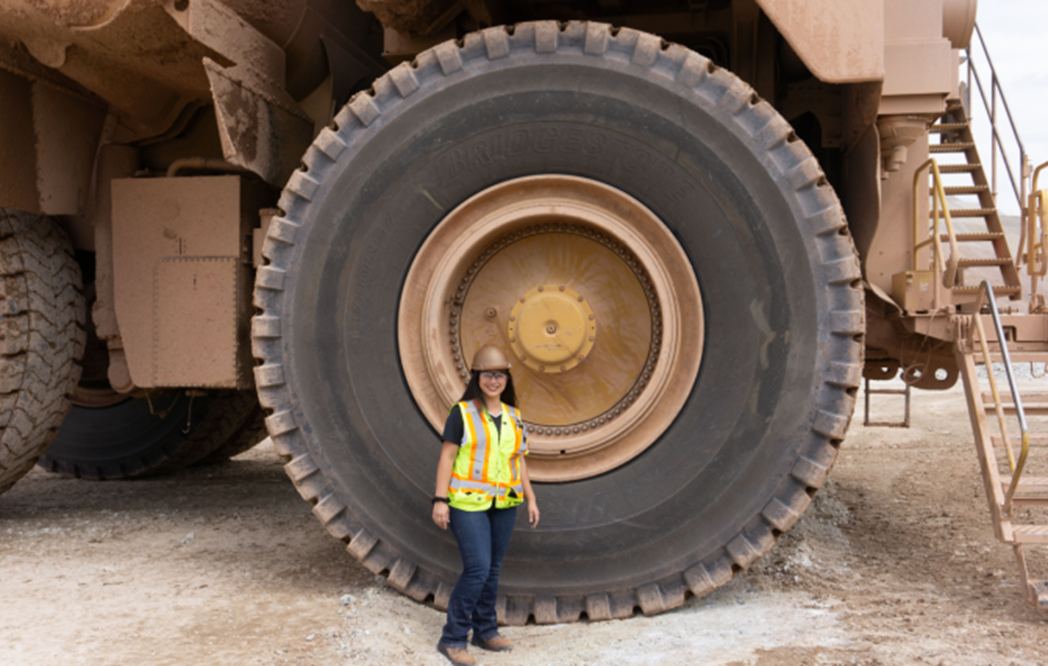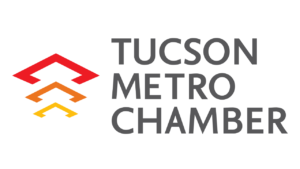SIGN IN
The IMPACT | November 2023
The IMPACT | November 2023
Industries of the Future

Tucson Metro Chamber Bridging Workforce Gaps in the Mining and Health Science Industries
The Tucson Metro Chamber is committed to bridging workforce gaps in the mining and health science industries. On October 10 and 11, 2023, the Chamber invited mining and health science representatives to have a roundtable discussion on the pressing workforce challenges they face in the region.
For more information on the Chamber's workforce advocacy efforts, and the Industries of the Future, please listen to the full episodes of The Business Of Podcast, where our Chamber staff go further into detail about these topics.
Mining Industry
The mining industry has a rich history in Southern Arizona and contributes significantly to the region's economic prosperity. However, the industry has encountered challenges in building an effective K-12 educational pipeline.
Health Science Industry
The health science and healthcare sector has been a beacon of innovation and growth in Southern Arizona. With the region's increasing prominence in this area, it is essential to nurture the industry's workforce needs.
Roundtable Highlights Mining Roundtable
Education Pipeline
The mining industry faces a significant challenge in attracting and developing a talented workforce. One key challenge is the ineffective pipeline into the sector. Mining is not often presented as a viable career option in schools, and many students are not exposed to the relevant skills and knowledge. This leads to a lack of career-ready talent entering the mining industry. To address this challenge, the mining industry needs to work with educational institutions to develop programs that align with the skills and qualifications required for mining jobs. Additionally, the industry needs to do more to expose students to mining careers through hands-on experiences and outreach programs.
Skills/Qualifications
The mining industry is rapidly evolving, and the skills and qualifications required for mining jobs are changing accordingly. Mining companies need to ensure that their workforce is equipped with the skills and knowledge necessary to meet the demands of the future. To achieve this, mining companies should invest in training and development programs for their employees. Additionally, they should work with educational institutions to ensure that their programs are aligned with the needs of the mining industry.
Attraction/Retention
The mining industry also faces a challenge in attracting and retaining a diverse workforce. This is due to a number of factors, including the perceived lack of career opportunities for women and minorities, the remote locations of many mining operations, and the demanding work environment. To address these challenges, the mining industry needs to create a more inclusive and welcoming work environment. This includes promoting diversity and equity in hiring and promotion practices, providing flexible work arrangements, and offering competitive salaries and benefits. Additionally, mining companies need to do more to promote the benefits of a career in mining, particularly to underrepresented groups.
Health Science Roundtable

Education Pipeline
Stackable credentials have been beneficial for the healthcare industry, but there is a need to focus on local talent and address the high turnover rate caused by the stress of the sector. Additionally, there is a gap between degree/certification and application on the job. Solutions include longitudinal student placement partnerships, internships, and externships.
Skills/Qualifications
Healthcare employers should work with educational institutions to develop programs that focus on developing the skills and qualifications that are most important for healthcare jobs. Additionally, employers could provide more opportunities for students and new graduates to gain hands-on experience through internships and apprenticeships.
Attraction/Retention
The healthcare industry needs to create a more supportive and sustainable work environment for its employees. This includes providing leadership development opportunities, self-care resources, and resilience training. Additionally, healthcare employers need to do more to invest in their employees' professional development and offer competitive salaries and benefits.
To attract and retain a diverse workforce, the healthcare industry needs to promote diversity and equity in hiring and promotion practices, provide flexible work arrangements, and offer competitive salaries and benefits. Additionally, healthcare employers need to do more to promote the benefits of a career in healthcare, particularly to underrepresented groups.
Next Steps for the Chamber
The Tucson Metro Chamber plans to utilize these conversations in advocating for a healthy workforce in the community. The Chamber is committed to its advocacy, partnerships, and collaborative efforts to create a more skilled, diverse, and innovative workforce for the mining and health science industries.
Conclusion
The Tucson Metro Chamber is a powerful advocate and driver of economic progress in Southern Arizona. By bridging workforce gaps in the mining and health science industries, the Chamber is ensuring a bright and sustainable future for the region.
In the News
Stay up-to-date on the Tucson Metro Chamber's advocacy efforts with recent media coverage in KOLD NEWS, KGUN 9, Tucson Sentinel, the Arizona Daily Star, and Inside Tucson Business.
For press releases and advocacy alerts, subscribe to our press release page here.
For upcoming events, subscribe to our calendar here.
To be notified of our bi-monthly blog posts, subscribe on this page.
Take our Survey!
The Chamber invites you to share your insights and concerns by completing a brief 3-minute survey. Your voice is crucial in shaping the Chamber’s future advocacy priorities.
